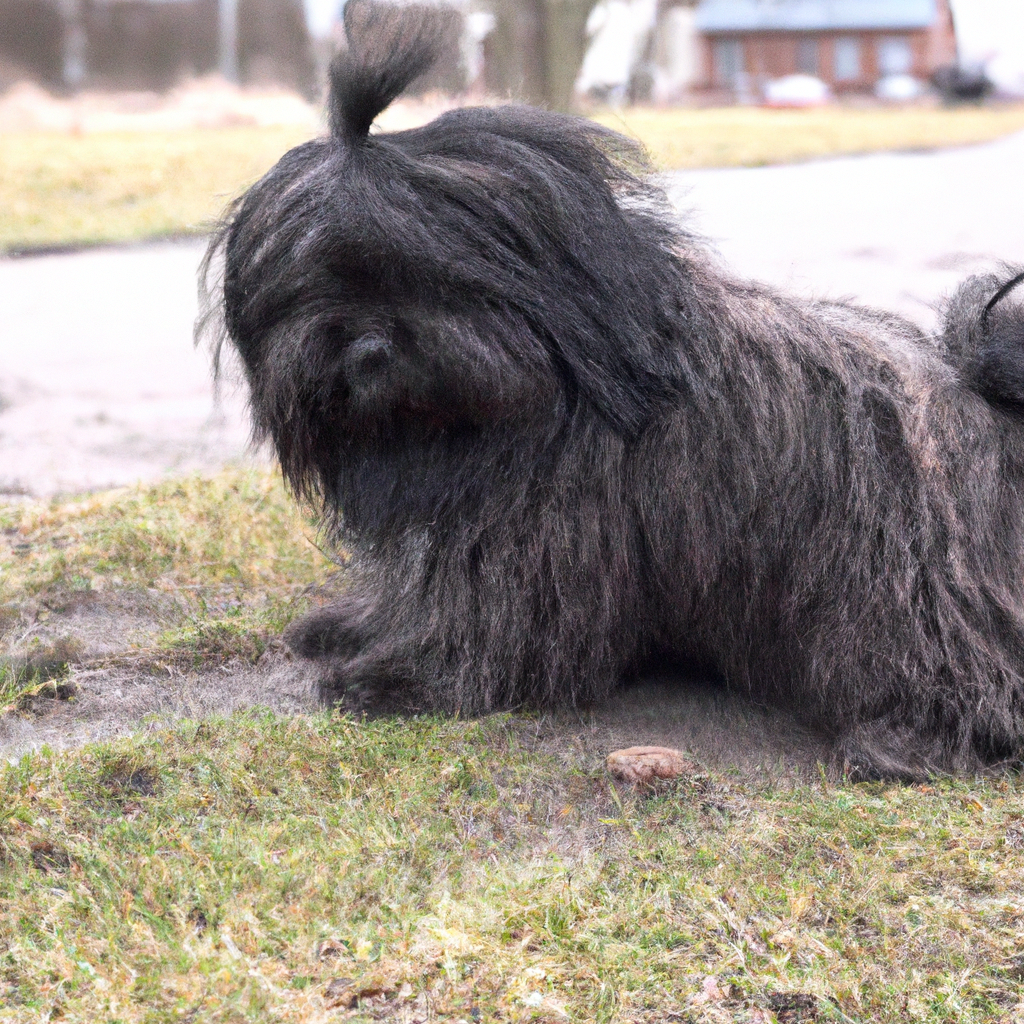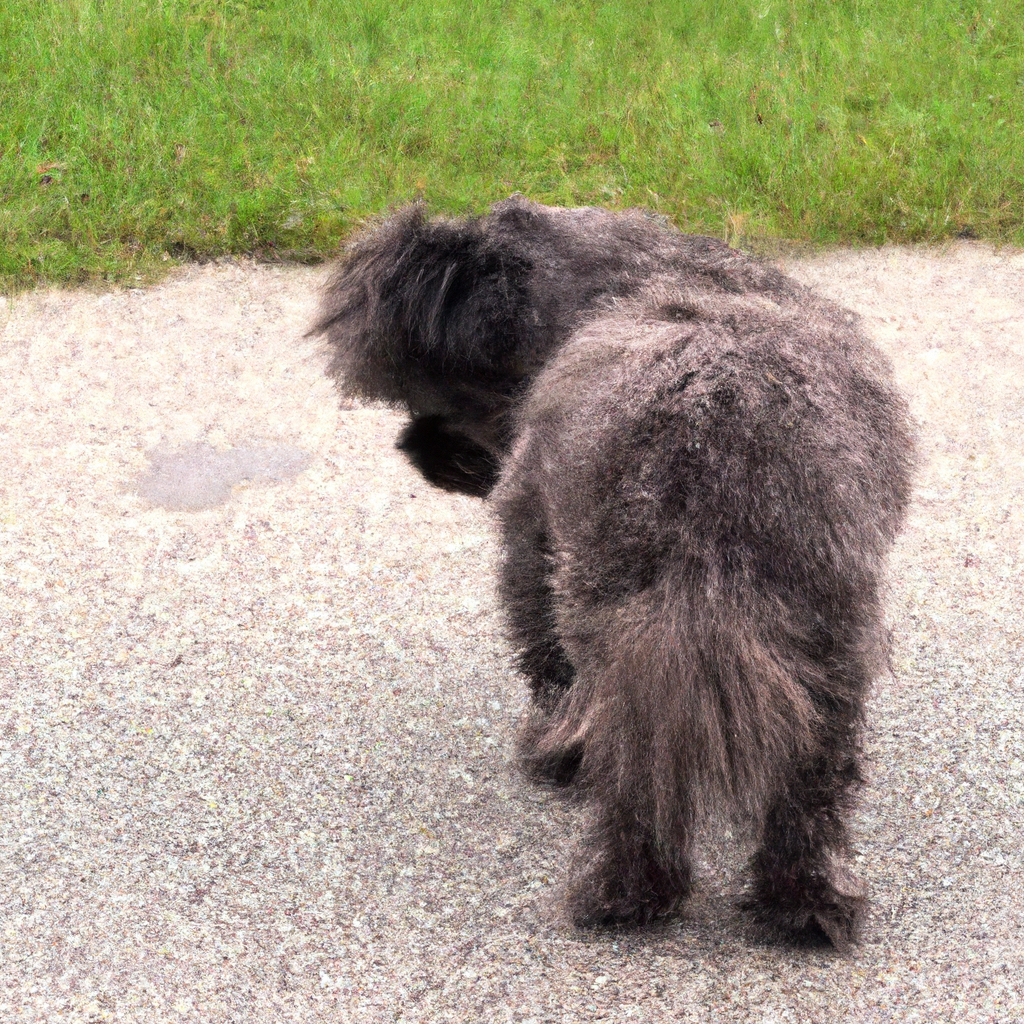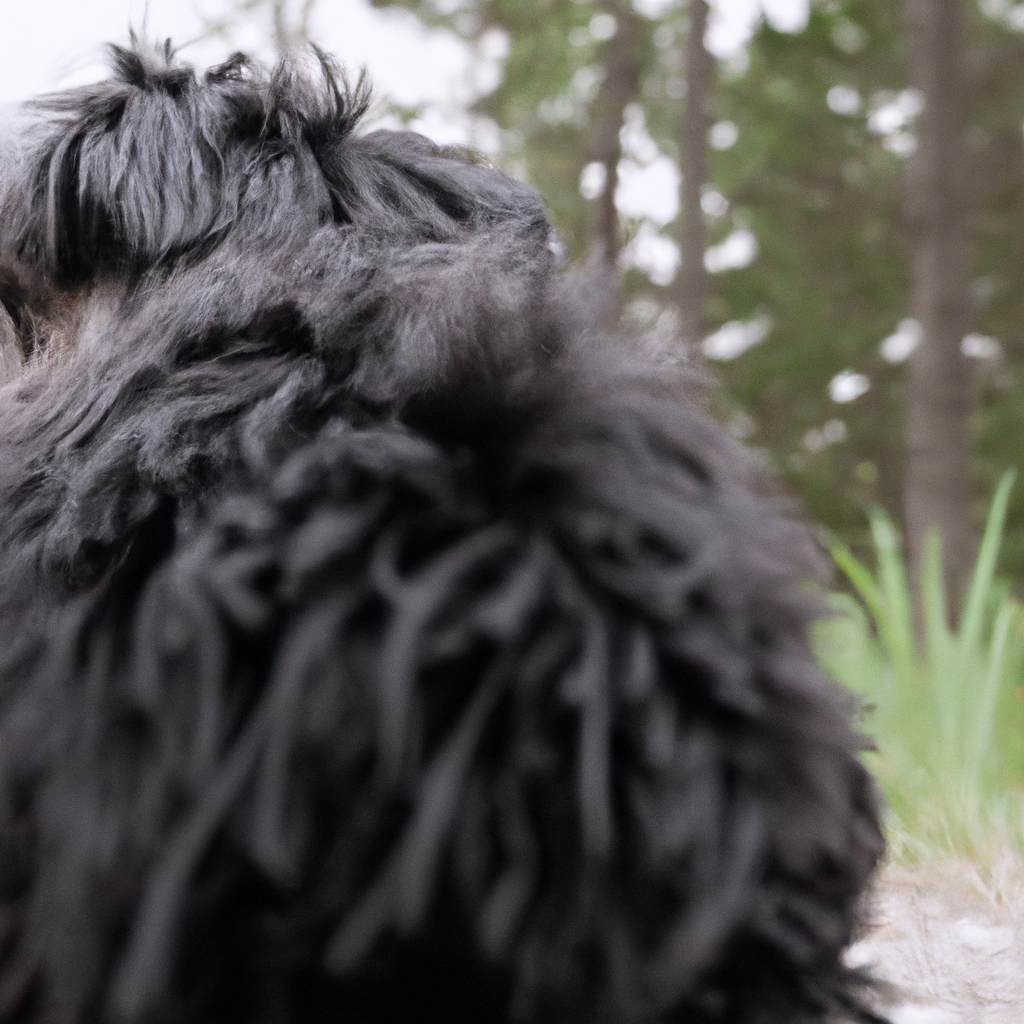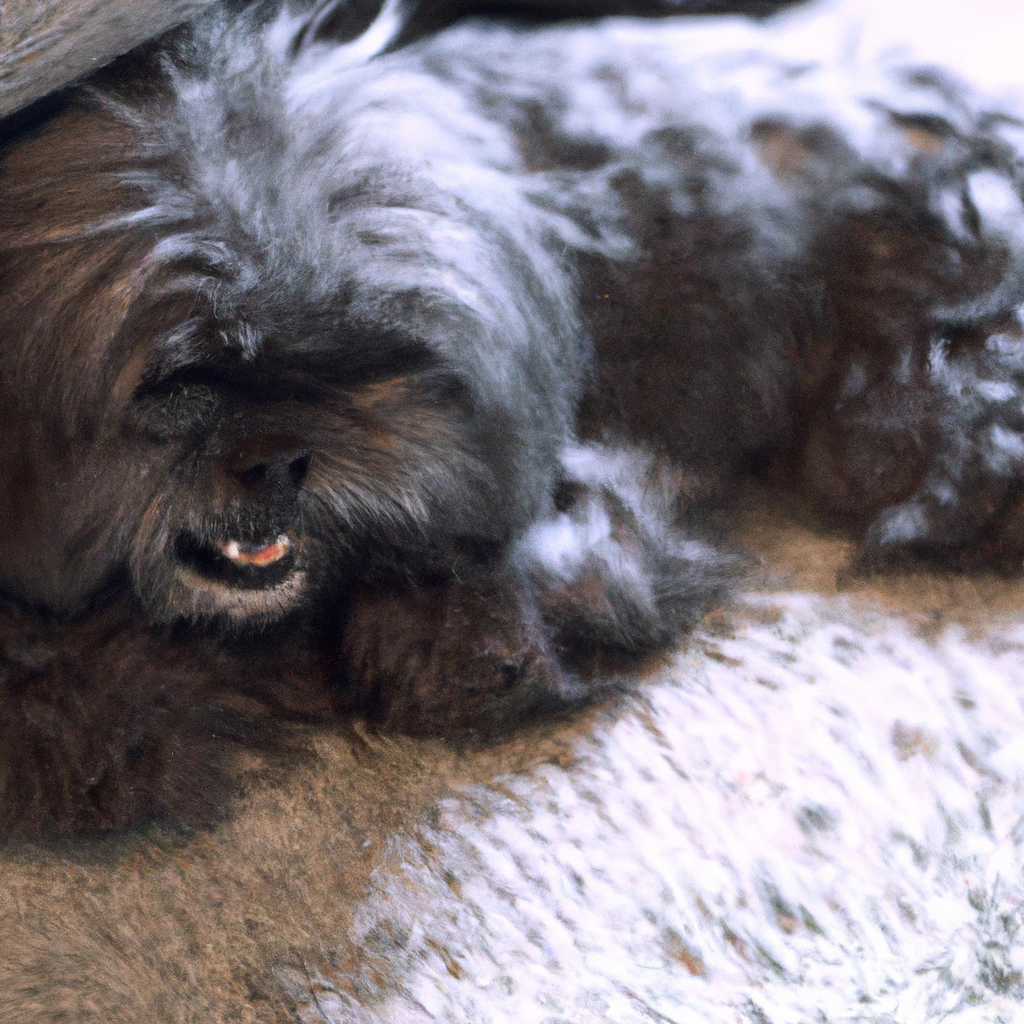Affenpinschers, also known as “Monkey Terriers”, are small but sturdy dogs with a unique appearance that resembles monkeys. Originating from Germany, these dogs are known for their distinctive facial features and shaggy coat. Affenpinschers are characterized by their fearless, alert, and loyal nature. They are typically very sociable and get along well with other pets and children, but they can be somewhat territorial. These dogs are intelligent and can be trained, but they also have a stubborn streak which can make training a challenge. Affenpinschers are generally active and playful, requiring regular exercise to keep them healthy and happy. Despite their small size, they make excellent watchdogs due to their alertness and protective nature. They are known to be quite vocal and can be prone to excessive barking if not properly trained. Overall, Affenpinschers are loving and loyal companions with a spirited and bold personality.
Understanding the Playful Nature of Affenpinschers
Affenpinschers, often referred to as “Monkey Terriers” due to their distinct primate-like appearance, are a small but mighty breed of dog that are known for their playful and adventurous nature. If you’re considering bringing an Affenpinscher into your home, it’s important to understand their unique behavior and what you can expect from this lively breed.
Affenpinschers are known for their boundless energy and playful demeanor. They are always ready for a game or a new adventure, making them a great companion for active individuals or families. Their small size doesn’t deter them from being fearless and bold, often forgetting they are not as big as their courage suggests. This can sometimes lead to amusing situations, as they are not afraid to take on dogs much larger than themselves.
One of the most endearing traits of Affenpinschers is their curiosity. They are always eager to explore their surroundings and investigate new things. This curiosity, however, can sometimes get them into trouble, as they have a tendency to get into things they shouldn’t. Therefore, it’s important to keep a close eye on them and ensure they are in a safe environment.
Despite their playful nature, Affenpinschers are also known for their loyalty and protective instincts. They form strong bonds with their families and are often wary of strangers. This makes them excellent watchdogs, as they are always alert and ready to protect their loved ones. However, their protective nature can sometimes lead to excessive barking, so it’s important to train them from a young age to control this behavior.
Training an Affenpinscher can be a bit of a challenge due to their stubborn and independent nature. They are intelligent dogs, but they also have a mind of their own and like to do things their way. However, with patience, consistency, and positive reinforcement, they can be trained to follow commands and behave well. It’s also important to socialize them from a young age to ensure they get along well with other dogs and people.
Affenpinschers are also known for their clownish behavior. They love to entertain and make their owners laugh with their antics. They are often described as having a sense of humor, and their playful and mischievous nature certainly contributes to this. They are great at lifting spirits and bringing joy to any home.
Despite their high energy levels, Affenpinschers also enjoy their downtime. They love to cuddle and will often seek out the comfort of their owner’s lap. They are affectionate dogs that thrive on attention and love from their families.
In conclusion, Affenpinschers are a lively and playful breed that are full of personality. They are curious, bold, and protective, making them a great companion for those who lead an active lifestyle. However, they also require a lot of attention and training to ensure they stay out of trouble and behave well. If you’re up for the challenge, an Affenpinscher can bring a lot of joy and laughter into your life with their entertaining antics and affectionate nature.
Affenpinschers: What to Expect from Their Energy Levels
Affenpinschers, often referred to as “Monkey Dogs” due to their distinctive, primate-like faces, are a small breed of dog that originated in Germany. These dogs are known for their playful and adventurous spirit, but what can you expect from their energy levels?
Affenpinschers are a lively and active breed. They are full of energy and love to play, making them a great choice for families with children or for individuals who lead an active lifestyle. Despite their small size, these dogs are not lap dogs. They are always on the move, exploring their surroundings, and looking for the next adventure.
However, don’t let their high energy levels fool you. Affenpinschers also know when it’s time to relax. They are quite adaptable and can adjust their energy levels to match their environment. If you’re having a lazy day at home, your Affenpinscher will be more than happy to curl up on the couch with you. But if you’re out and about, they’ll be right there with you, ready to take on the world.
One of the most endearing traits of Affenpinschers is their curiosity. They are always eager to investigate new sights, sounds, and smells. This curiosity, combined with their high energy levels, means that they require plenty of mental and physical stimulation. Without it, they can become bored and potentially destructive.
To keep your Affenpinscher happy and healthy, it’s important to provide them with plenty of toys and activities. Puzzle toys are a great way to challenge their minds, while regular walks and playtime can help burn off their excess energy. Training sessions can also be a good way to engage their minds and bodies. Affenpinschers are intelligent and eager to please, making them relatively easy to train.
Despite their high energy levels, Affenpinschers are not overly demanding when it comes to exercise. A few short walks a day, combined with some playtime at home, is usually enough to keep them satisfied. However, they do enjoy the occasional adventure, so trips to the park or beach can be a real treat.
It’s also worth noting that Affenpinschers are a fairly healthy breed. They are not prone to many of the health issues that can affect other small breeds, such as heart problems or joint issues. This means that their high energy levels can be maintained well into their senior years.
In conclusion, if you’re considering adding an Affenpinscher to your family, you can expect a dog that is full of energy and curiosity. They are active and playful, but also know when it’s time to relax. They require plenty of mental and physical stimulation to keep them happy and healthy, but they are not overly demanding. With the right care and attention, an Affenpinscher can make a wonderful addition to any home.
The Protective Instincts of Affenpinschers: A Comprehensive Guide
Affenpinschers, often referred to as “Monkey Terriers” due to their distinct primate-like appearance, are small but mighty dogs known for their playful and protective nature. If you’re considering bringing an Affenpinscher into your home, it’s essential to understand their behavior and what to expect, particularly their protective instincts.
Affenpinschers are known for their loyalty and devotion to their families. Despite their small size, they are fearless and won’t hesitate to protect their loved ones from perceived threats. This protective instinct is a part of their nature, stemming from their history as ratters in 17th-century Germany. They were bred to guard stables, shops, and homes from rodents, a job that required a high level of alertness and a strong protective instinct.
This protective nature has carried over into modern times, making Affenpinschers excellent watchdogs. They are always on high alert and will quickly notify their owners of any unusual activity. However, it’s important to note that while they are quick to sound the alarm, their small size doesn’t make them the best choice for a guard dog. They are more likely to alert you to a potential threat than to physically confront it.
Affenpinschers are also known for their territorial behavior. They often become possessive of their toys, food, and even their favorite humans. This can sometimes lead to aggressive behavior if they feel their territory is being threatened. It’s crucial to socialize Affenpinschers from a young age to prevent this behavior from becoming a problem. Regular interaction with other dogs and people can help them understand that not every new face is a threat.
Despite their protective and sometimes territorial nature, Affenpinschers are also known for their affectionate and playful side. They love to be the center of attention and are always ready for a game or a cuddle. They form strong bonds with their families and are happiest when they are included in all family activities. Their lively and entertaining personality often makes them the life of the party.
However, their protective instincts can sometimes make them wary of strangers. They may take some time to warm up to new people and may initially react with barking or standoffish behavior. Patience and gentle introductions can help them become more comfortable around new faces.
Training an Affenpinscher can be a bit of a challenge due to their independent and stubborn nature. However, with consistent, positive reinforcement training methods, they can learn to channel their protective instincts in a positive way. It’s also important to provide them with plenty of mental and physical stimulation to prevent boredom, which can lead to destructive behavior.
In conclusion, if you’re considering adding an Affenpinscher to your family, be prepared for a loyal, protective, and affectionate companion. Their protective instincts make them excellent watchdogs, but it’s important to socialize and train them properly to ensure they become well-rounded dogs. With the right approach, an Affenpinscher can bring a lot of joy and laughter to your home, all while keeping a watchful eye on their beloved family.
Affenpinschers and Their Interaction with Other Pets
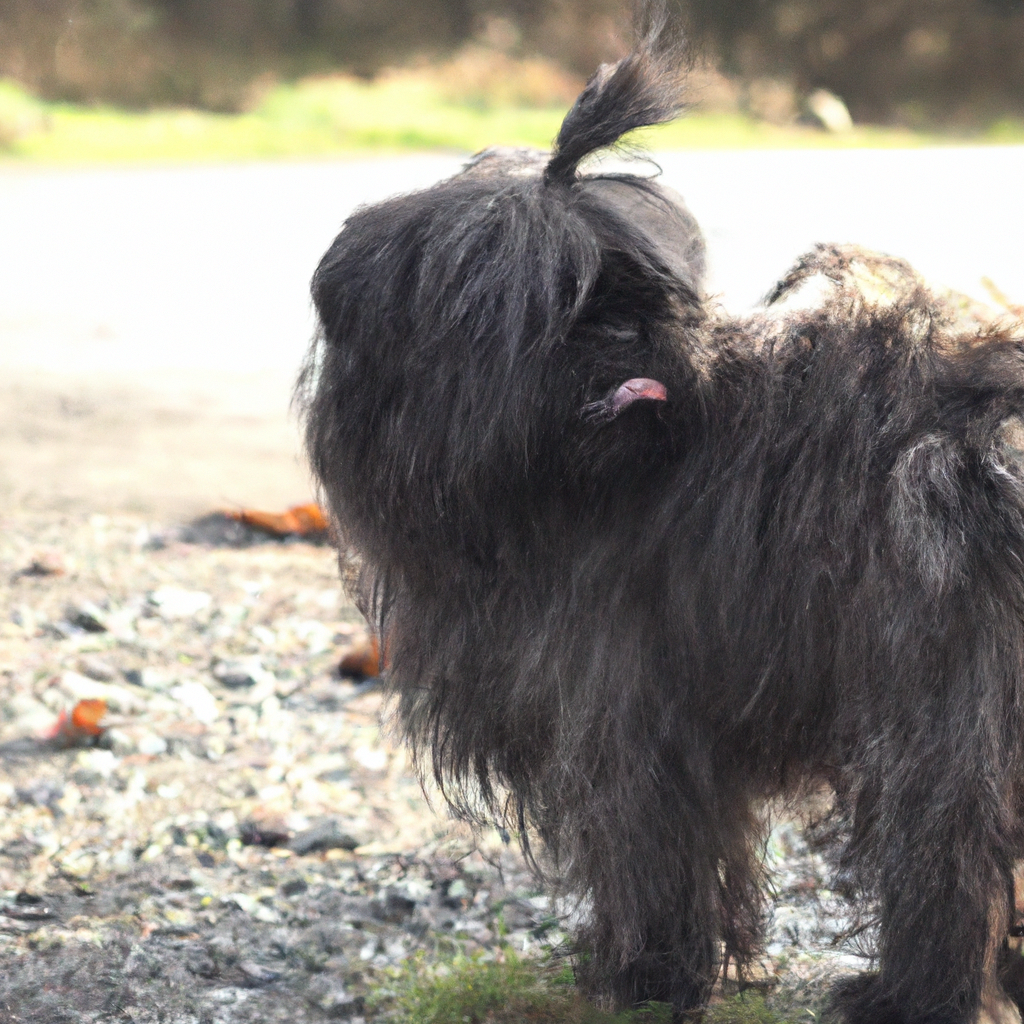
Affenpinschers, often referred to as “Monkey Terriers” due to their distinct primate-like appearance, are a small breed of dog that originated in Germany. These dogs are known for their playful and adventurous nature, making them a delightful addition to any family. However, when it comes to their interaction with other pets, there are a few things you should expect.
Firstly, Affenpinschers are known for their bold and assertive nature. Despite their small size, they are not afraid to stand their ground. This can sometimes lead to confrontations with other pets, especially larger dogs who may not appreciate their feisty attitude. However, this doesn’t mean that Affenpinschers can’t get along with other pets. In fact, with proper socialization and training, they can form strong bonds with other animals.
One of the key aspects of Affenpinschers’ behavior is their high energy levels. They are always on the move, exploring their surroundings and looking for new adventures. This can be a great source of entertainment for other pets, especially those who share their playful nature. However, it can also be overwhelming for more laid-back pets who prefer a quieter environment. Therefore, it’s important to consider the personality of your existing pets before bringing an Affenpinscher into your home.
Another important factor to consider is the Affenpinscher’s strong prey drive. These dogs were originally bred to hunt rats and other small vermin, and this instinct is still very much present in the breed today. This means that they may not be the best choice for households with small pets such as hamsters, guinea pigs, or birds, as they may see them as prey rather than companions.
Despite these potential challenges, many pet owners have successfully integrated Affenpinschers into multi-pet households. The key is to introduce them to other pets gradually and under controlled conditions. It’s also important to establish clear boundaries and ensure that all pets have their own space where they can retreat if they feel overwhelmed.
Training also plays a crucial role in facilitating positive interactions between Affenpinschers and other pets. These dogs are intelligent and eager to please, which makes them highly trainable. By teaching them basic commands and reinforcing positive behavior, you can help them understand how to interact appropriately with other pets.
In conclusion, while Affenpinschers may have a bold and assertive nature, they can get along well with other pets with the right training and socialization. Their high energy levels and strong prey drive can pose challenges, but these can be managed with patience and understanding. Ultimately, the Affenpinscher’s playful and adventurous spirit can make them a fun and engaging companion for both humans and other pets. So, if you’re considering adding an Affenpinscher to your family, don’t let their interaction with other pets deter you. With the right approach, they can form strong and lasting bonds with their fellow furry friends.
Training Your Affenpinscher: Dealing with Stubbornness
Affenpinschers, often referred to as “Monkey Terriers” due to their distinct primate-like appearance, are small but mighty dogs known for their playful and adventurous spirit. However, they are also notorious for their stubborn streak, which can sometimes make training a bit of a challenge. If you’re considering bringing an Affenpinscher into your home, it’s essential to understand how to navigate this stubbornness and effectively train your new furry friend.
Affenpinschers are intelligent and quick learners, but their independent nature can sometimes be mistaken for stubbornness. They have a strong will and like to do things their way, which can make traditional training methods less effective. However, this doesn’t mean that training an Affenpinscher is impossible. It just requires a little more patience, creativity, and a good understanding of their unique personality.
One of the most effective ways to train an Affenpinscher is through positive reinforcement. This breed responds well to rewards, so be sure to have plenty of treats on hand during training sessions. When your Affenpinscher performs a desired behavior, immediately reward them with a treat and lots of praise. This will help them associate the behavior with positive outcomes, making them more likely to repeat it in the future.
However, it’s important to remember that Affenpinschers are not motivated solely by food. They also crave attention and affection from their owners. Therefore, incorporating plenty of playtime and cuddles into your training routine can be just as effective as treats. This will not only help reinforce positive behaviors but also strengthen the bond between you and your Affenpinscher.
Despite their stubbornness, Affenpinschers are very sensitive dogs. They do not respond well to harsh training methods or punishment. Instead, they require a gentle, patient approach. If your Affenpinscher is not responding to a command or is behaving in an undesirable way, it’s important to remain calm and patient. Yelling or punishing your dog will only create fear and confusion, which can hinder the training process.
Consistency is also key when training an Affenpinscher. This breed can be a bit forgetful, so it’s important to repeat commands and behaviors regularly until they become ingrained. This may require more repetition than with other breeds, but with patience and persistence, your Affenpinscher will eventually catch on.
Socialization is another important aspect of training. Affenpinschers are naturally wary of strangers and can be a bit territorial. Therefore, it’s important to expose them to a variety of people, places, and situations from a young age. This will help them become more comfortable in different environments and reduce the likelihood of aggressive or fearful behavior.
In conclusion, while Affenpinschers may have a reputation for being stubborn, they are also intelligent, affectionate, and eager to please their owners. With the right approach, training your Affenpinscher can be a rewarding experience that strengthens the bond between you and your furry friend. Remember to be patient, consistent, and positive, and you’ll soon discover that your Affenpinscher is capable of learning much more than you might think.
Affenpinschers and Their Tendency to Bark: What You Need to Know
Affenpinschers, often referred to as “Monkey Terriers” due to their distinct primate-like appearance, are a small breed of dog that originated in Germany. These dogs are known for their playful and adventurous nature, making them a popular choice for families and individuals alike. However, like any breed, Affenpinschers have their own unique set of behaviors and tendencies that potential owners should be aware of. One of the most notable traits of the Affenpinscher is their tendency to bark.
Now, you might be wondering, “Don’t all dogs bark?” While it’s true that barking is a common behavior among all dogs, Affenpinschers are known for their particularly vocal nature. This isn’t necessarily a bad thing, but it’s something that potential owners should be prepared for. Affenpinschers use barking as a way to communicate with their owners, alert them to potential threats, and express their feelings.
However, it’s important to note that not all Affenpinschers will bark excessively. The frequency and volume of their barking can vary greatly from dog to dog, and is often influenced by factors such as their environment, training, and individual personality. For example, an Affenpinscher that is regularly exposed to loud noises or unfamiliar people may bark more frequently as a way to express their discomfort or fear. On the other hand, an Affenpinscher that has been properly trained and socialized may be less likely to bark without reason.
While Affenpinschers are known for their barking, they are also known for their intelligence and eagerness to please. This means that with the right training, their barking can be managed and even used to your advantage. For instance, you can train your Affenpinscher to bark on command, or to stop barking when given a specific signal. This not only helps to control their barking, but also provides them with mental stimulation and a way to channel their energy.
Despite their tendency to bark, Affenpinschers are generally friendly and sociable dogs. They enjoy being around people and are known for their affectionate nature. They are also quite active and require regular exercise to keep them healthy and happy. This can include daily walks, playtime in the yard, or even agility training.
In addition to their physical needs, Affenpinschers also require mental stimulation to prevent boredom and destructive behavior. This can be achieved through puzzle toys, training sessions, and social interactions with other dogs or people.
In conclusion, while Affenpinschers are known for their tendency to bark, this is just one aspect of their behavior. With the right training and care, their barking can be managed and they can make wonderful companions. They are intelligent, affectionate, and active dogs that thrive in a loving and stimulating environment. So, if you’re considering adding an Affenpinscher to your family, be prepared for a vocal but incredibly rewarding companion.
The Affenpinscher’s Hunting Instincts: A Closer Look
Affenpinschers, often referred to as “Monkey Terriers” due to their distinct primate-like appearance, are small but mighty dogs with a rich history and unique behavioral traits. One of the most fascinating aspects of these dogs is their inherent hunting instincts. This article will delve into the Affenpinscher’s hunting instincts, providing a closer look at what to expect from these spirited canines.
Originating from Germany in the 17th century, Affenpinschers were initially bred to serve as ratters in homes, stables, and shops. Their primary role was to keep the rat and mouse population under control. This historical background has significantly influenced the Affenpinscher’s behavior, particularly their hunting instincts. Even today, these dogs are known for their tenacity, alertness, and fearlessness, traits that made them excellent ratters in the past.
Affenpinschers are naturally curious and energetic, always on the lookout for something to chase or investigate. This is a clear manifestation of their hunting instincts. They are quick to notice small movements, and their keen senses make them excellent watchdogs. However, it’s important to note that their hunting instincts can sometimes lead them to chase small animals, including squirrels, birds, and even insects. Therefore, it’s crucial to keep an eye on them during outdoor activities to ensure they don’t get into trouble.
Despite their small size, Affenpinschers are incredibly brave and protective, often forgetting how tiny they are when faced with a perceived threat. This boldness is another aspect of their hunting instincts. They are not afraid to take on larger animals or stand their ground when they feel threatened. This trait, while admirable, can sometimes put them in dangerous situations. As such, it’s essential to supervise interactions with larger dogs or potentially dangerous situations.
Affenpinschers are also known for their playful and mischievous nature. They love to engage in games that stimulate their hunting instincts, such as fetch or tug-of-war. Toys that mimic the movement of small animals can also keep them entertained for hours. This playfulness is not only a great way to keep them physically active but also a means to satisfy their hunting instincts in a safe and controlled environment.
However, it’s important to remember that while Affenpinschers have strong hunting instincts, they are also incredibly affectionate and loyal pets. They form strong bonds with their families and are known for their love of cuddling and being close to their owners. They are also intelligent and responsive to training, which can help manage their hunting instincts and ensure they behave appropriately.
In conclusion, the Affenpinscher’s hunting instincts are a significant part of their behavior and personality. These traits, which include curiosity, bravery, and playfulness, make them unique and endearing pets. However, it’s essential to understand and manage these instincts to ensure they stay safe and happy. With the right training and care, Affenpinschers can channel their hunting instincts in a positive way, making them not only excellent companions but also entertaining and engaging pets.
Affenpinschers: Understanding Their Need for Human Companionship
Affenpinschers, often referred to as “Monkey Terriers” due to their distinct primate-like appearance, are small but mighty dogs known for their playful and adventurous spirit. These dogs, originating from Germany, are not just adorable but also possess a unique personality that sets them apart from other breeds. If you’re considering bringing an Affenpinscher into your home, it’s essential to understand their behavior and their need for human companionship.
Affenpinschers are known for their loyalty and affection towards their human companions. They thrive on human interaction and love being the center of attention. This breed is not one to be left alone for long periods, as they can become anxious and even develop destructive behaviors. They crave companionship and are happiest when they are part of family activities. Whether it’s a walk in the park, a car ride, or simply lounging on the couch, your Affenpinscher will want to be right by your side.
Despite their small size, Affenpinschers are full of energy and require regular exercise to keep them healthy and happy. They love to play and explore, making them a great companion for children. However, their energetic nature also means they can be a bit mischievous. They are known for their curiosity and love for adventure, which can sometimes lead them into trouble. Therefore, it’s crucial to provide them with plenty of toys and activities to keep them occupied and satisfy their need for mental stimulation.
Affenpinschers are also known for their protective nature. They are fearless and won’t hesitate to stand up to larger dogs or strangers if they feel their family is threatened. This trait makes them excellent watchdogs, but it also means they can be a bit territorial. Early socialization is key to ensuring your Affenpinscher is comfortable around other dogs and people.
Training an Affenpinscher can be a bit of a challenge due to their stubborn and independent nature. They are intelligent dogs, but they also have a mind of their own and can be a bit resistant to training. However, with patience, consistency, and positive reinforcement, you can successfully train your Affenpinscher. It’s important to start training and socialization early to help shape their behavior and ensure they grow into well-rounded dogs.
Despite their need for attention and their energetic nature, Affenpinschers are also known for their love of comfort. They enjoy the finer things in life, like a cozy bed or a warm lap to snuggle on. After a day of play and adventure, there’s nothing an Affenpinscher loves more than curling up next to their favorite human for some rest and relaxation.
In conclusion, Affenpinschers are a unique breed with a lot to offer. They are loyal, affectionate, and full of energy, making them a great addition to any family. However, they also require a lot of attention and companionship. If you’re considering an Affenpinscher, be prepared to provide them with plenty of love, exercise, and mental stimulation. With the right care and training, an Affenpinscher can make a wonderful and loving companion.Affenpinschers are small, energetic, and playful dogs known for their distinctive monkey-like faces. They are generally friendly, sociable, and get along well with other pets. However, they can be stubborn and protective, which may lead to aggressive behavior if not properly trained. They are also known for their curiosity and mischievousness, often leading to playful antics. Affenpinschers require regular mental and physical stimulation to prevent boredom and destructive behavior. Despite their small size, they make excellent watchdogs. In conclusion, potential owners can expect an Affenpinscher to be a lively, playful, and sometimes stubborn companion that requires consistent training and plenty of interaction.
